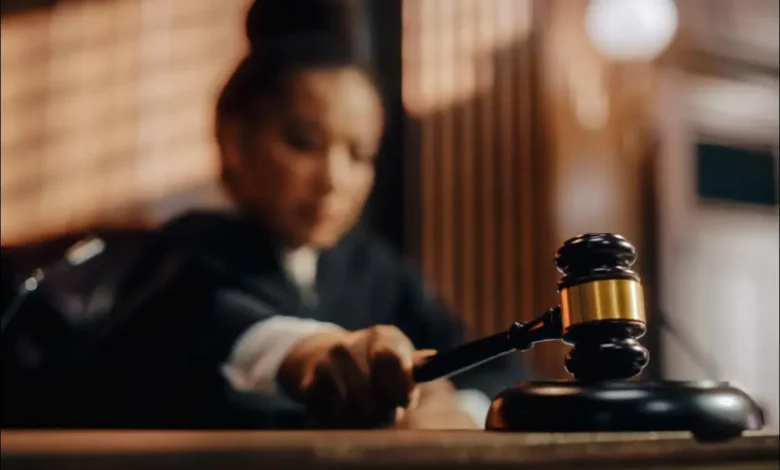Understanding the72 Sold Lawsuit: What You Need to Know

Introduction to the 72 Sold Lawsuit
The 72 Sold Lawsuit world of real estate can be a complex maze filled with opportunities and risks alike. Recently, the has captured the attention of investors and consumers across the nation. As details emerge about this controversial case, many are left wondering: what really happened? With allegations of misconduct swirling around this high-profile program, it’s crucial to dissect the facts and understand their implications. Whether you’re an investor, a home seller, or simply someone interested in real estate trends, getting up to speed on the 72 Sold lawsuit is essential for navigating these turbulent waters. Let’s dive into what you need to know about this unfolding saga.
History and Background of the Case
The 72 Sold lawsuit traces its roots back to the innovative real estate model introduced by a company aiming to streamline home sales. This approach promised homeowners a quick and efficient way to sell their properties, attracting significant attention.
As the concept gained momentum, it also drew scrutiny. Early adopters reported mixed experiences, prompting questions about transparency and ethics in transactions. Allegations of misleading marketing practices began surfacing almost immediately.
Over time, these concerns escalated into formal complaints from both investors and consumers who felt misled. The case quickly evolved into a legal battle that sparked widespread media coverage.
Numerous testimonies emerged, making the situation increasingly complex. Investors sought accountability, while consumers demanded clarity regarding their rights in this intricate scheme associated with property sales.
Key Players Involved in the Lawsuit
The 72 Sold lawsuit involves several key players, each contributing to the unfolding drama. At the forefront is 72 Sold’s founding team, including its CEO and co-founders. Their decisions have drawn scrutiny as allegations of misconduct emerged.
Investors who placed their trust in the company are particularly crucial to this narrative. Many feel misled by promises that seem too good to be true. Their stories add a human element to an otherwise corporate conflict.
Legal representatives for both sides are also pivotal. They navigate the complexities of real estate law while defending or prosecuting claims tied to alleged fraud.
Regulatory bodies may play a role in overseeing these proceedings, ensuring compliance with industry standards, and protecting consumer rights throughout this tumultuous journey.
Details of the Alleged Fraudulent Activity
The alleged fraudulent activities surrounding the 72 Sold lawsuit have raised significant concerns. Many investors claim that they were misled about the benefits of participating in the program. Promises of quick sales and high returns created a sense of urgency, pushing potential clients to act without thorough research.
Reports suggest that key marketing materials contained exaggerated success rates. This has left many feeling deceived as expectations needed to align with actual outcomes. Additionally, some participants allege undisclosed fees were tacked onto transactions, further eroding profits.
There are also 72 Sold Lawsuit claims regarding the need for more transparency in how funds are managed within the program. Participants expected clear communication but instead needed clarification over their investments’ status and performance metrics.
These allegations highlight serious ethical questions regarding business practices within 72 Sold, making it crucial for affected parties to seek clarity on their rights moving forward.
Impact on Investors and Consumers
The 72 Sold lawsuit has sent shockwaves through the investment community. Many investors are now grappling with uncertainty regarding their financial decisions.
For consumers, the implications can be even more severe. Trust in a once-promising investment platform has been damaged significantly. Those who invested their savings may face considerable losses, forcing them to reevaluate their financial strategies.
As news of the lawsuit spreads, potential buyers and sellers become increasingly cautious. This skepticism could lead to hesitance in engaging with similar platforms in the future.
Furthermore, the case raises questions about regulatory oversight in real estate transactions. Consumers are left wondering how they can protect themselves from fraudulent schemes in the future.
The ripple effect of this situation extends beyond just individuals directly involved—it affects market dynamics as well. Investors must now consider these developments when weighing the risks and rewards associated with real estate investments.
Current Status of the Lawsuit

The 72 Sold lawsuit is currently in a critical phase. As of October 2023, litigation continues to unfold in various courts across multiple states.
Recent hearings have revealed conflicting testimonies from key witnesses. This has complicated the case and delayed potential resolutions for affected parties.
Legal teams on both 72 Sold Lawsuit sides are actively gathering evidence and interviewing additional clients who allege misconduct. The mounting pressure could lead to settlements, but agreements still need to be finalized.
Public interest remains high as investors watch closely for updates. Media coverage has intensified, shedding light on the intricacies of the allegations and legal proceedings.
Many affected individuals are seeking advice from legal experts as they navigate this complex situation. Advocacy groups are also stepping up efforts to support consumers impacted by the alleged fraudulent activities associated with 72 Sold.
What to Do if You Are Affected by the 72 Sold Scandal
If you find yourself affected by the 72 Sold scandal, it’s crucial to act quickly. Start by gathering all relevant documents related to your transactions with the company. This includes contracts, emails, and any promotional materials.
Next, consult with a legal professional experienced in real estate or consumer fraud cases. They can provide valuable insights into your rights and potential remedies.
Consider joining support groups or online forums where others share their experiences. This can offer emotional support and practical advice from those who’ve navigated similar challenges.
Stay informed about ongoing developments in the lawsuit. Follow reliable news sources for updates that may impact your situation.
Document everything meticulously, as it could be vital evidence if further action is required later. Taking these steps will empower you while navigating this difficult time.
Lessons Learned and Preventative Measures for Future Investments
Investing can be tricky. The 72 Sold lawsuit serves as a stark reminder of the importance of due diligence. Always research any investment opportunity thoroughly before committing funds.
Transparency is key. Investors should demand clear, accessible information about business practices and financial statements. If something feels off, trust your instincts.
Additionally, diversifying investments can mitigate risks associated with scandals or market volatility. Don’t put all your eggs in one basket; spread out your assets to maintain stability.
Building relationships with reputable professionals also helps protect against fraud. Seek advice from certified financial advisors who prioritize ethical practices and have proven track records.
Stay informed about current events affecting the investment world, including trends and legal developments related to new ventures or technologies. Knowledge is power when it comes to safeguarding your investments against potential pitfalls like those seen in the 72 Sold case.
Conclusion
The 72 Sold lawsuit has cast a significant shadow over the real estate landscape. As the case unfolds, it continues to gather attention from investors, consumers, and industry professionals alike. The allegations of fraudulent activity raise essential questions about transparency and ethical business practices in property transactions.
Navigating the situation can be daunting for those affected by this scandal. It’s crucial to stay informed about your rights and options moving forward. Engaging with legal counsel can provide clarity and help you understand potential avenues for recourse.
This case serves as a critical reminder of the importance of diligence in investment decisions. Educating oneself on market trends, scrutinizing deal structures, and understanding contractual obligations are vital steps every investor should take to mitigate risk.
As developments occur in the 72 Sold lawsuit, vigilance will be key for all involved parties. Keeping abreast of updates will empower individuals to make informed choices that protect their interests now and in future endeavors within real estate investments.

